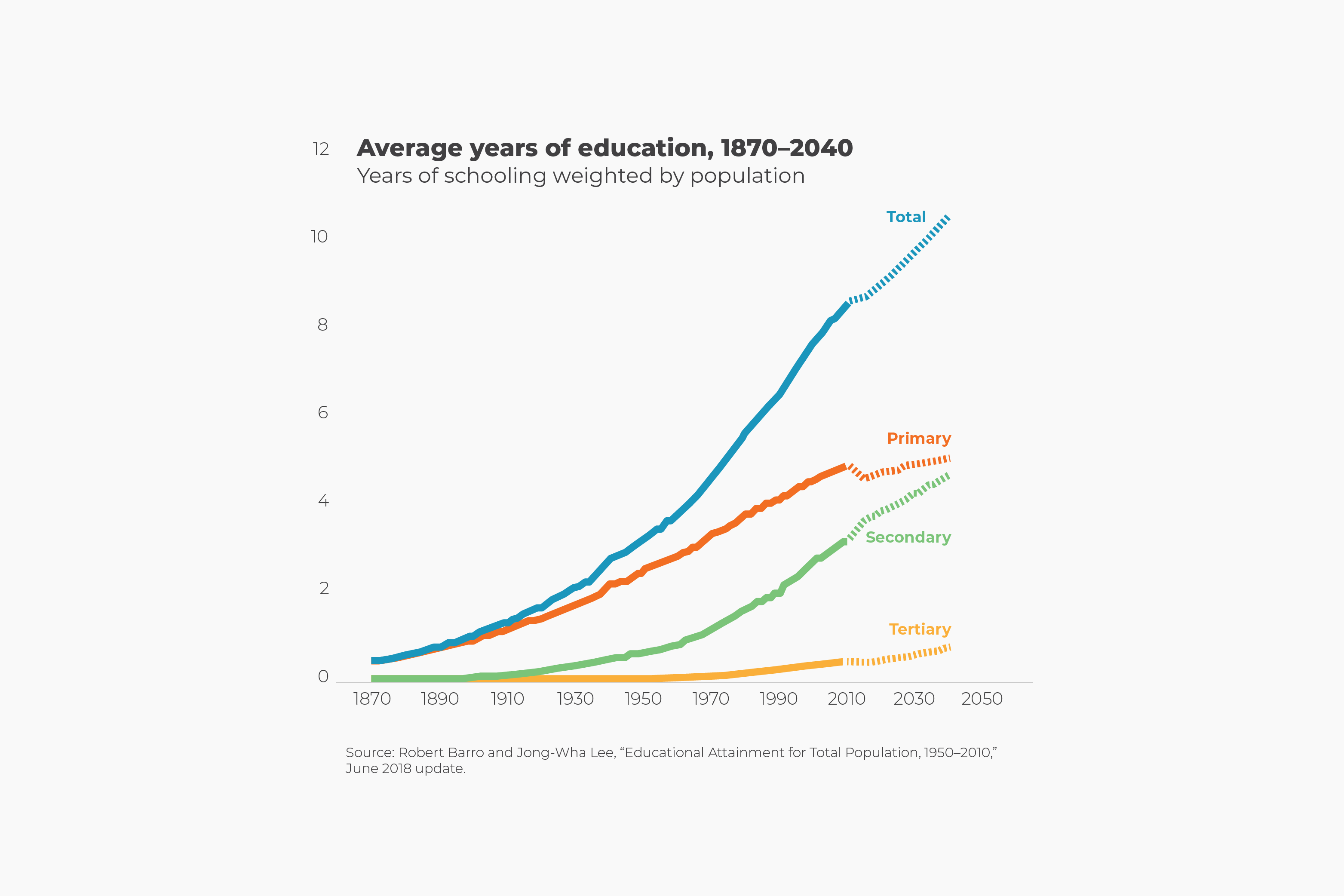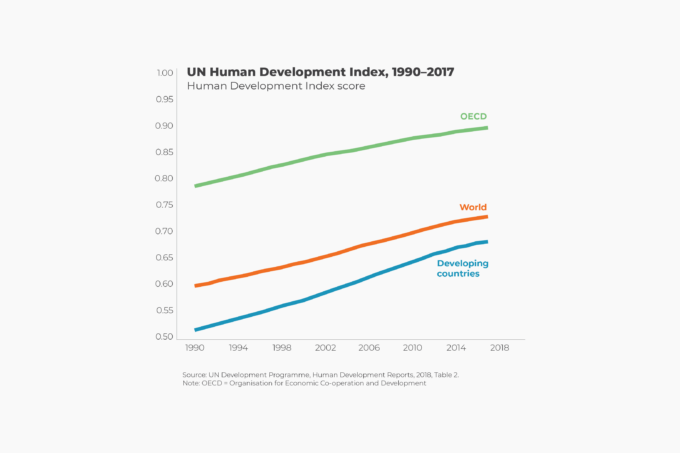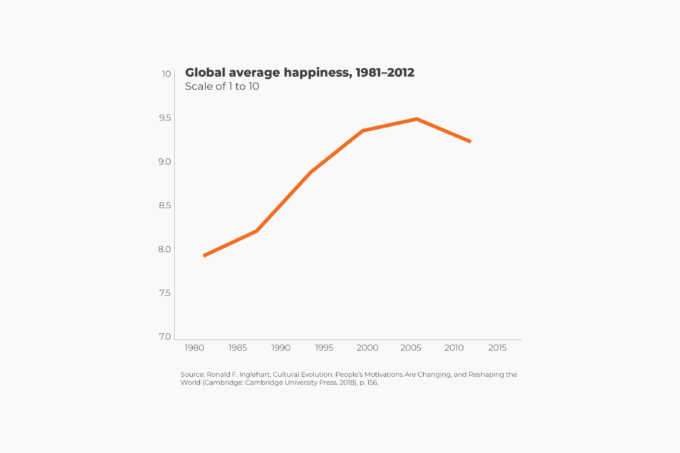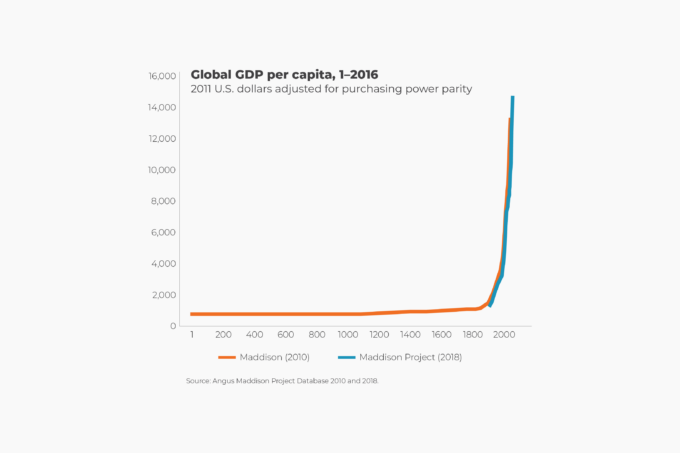Throughout most of history, education was by and large limited to a small sliver of urban-dwelling, freeborn men, and included clergy, imperial administrators, tax collectors, and merchants. Peasants—who constituted between 80 percent and 90 percent of the population in much of the world until the Industrial Revolution—were too poor to pay for schooling. In any case, low agricultural productivity meant that everyone, including the peasants’ children, had to work the land to produce enough food to survive.
As late as 1870, the total length of schooling at all levels of education for people between the ages of 25 and 64 is estimated to have been only about 0.5 years. In a handful of outliers, such as Switzerland and the United States, it was as high as four years. In France and the United Kingdom, it averaged less than one year. In the world’s less developed regions, such as Africa and Asia, schooling remained negligible.
By 2010, Robert Barro from Harvard University and Jong-Wha Lee from Korea University estimated that the global average length of schooling at all levels of education stood at 8.56 years. That year, primary, secondary, and tertiary schooling amounted to 4.85 years, 3.23 years, and 0.48 years, respectively. By 2040, the four measures of schooling will increase to 10.52 years (total), 5.03 years (primary), 4.69 years (secondary), and 0.8 years (tertiary).
A new study in the Lancet estimates that in 2040 the global life expectancy will reach 74 years for men and 80 years for women. That means that men will spend over 14 percent of their lives in school, whereas women will spend over 13 percent of their lives in school. Contrast those statistics with 2010. That year, global life expectancy for men and women was 68.6 years and 72.8 years, respectively. That means that men and women spent 12.5 percent and 11.8 percent, respectively, of their lives learning.
Economists, including Barro himself, note a robust correlation between education and economic growth. The lengthening of schooling, in other words, is one of the reasons for humanity’s great enrichment over the past 200 years or so.








